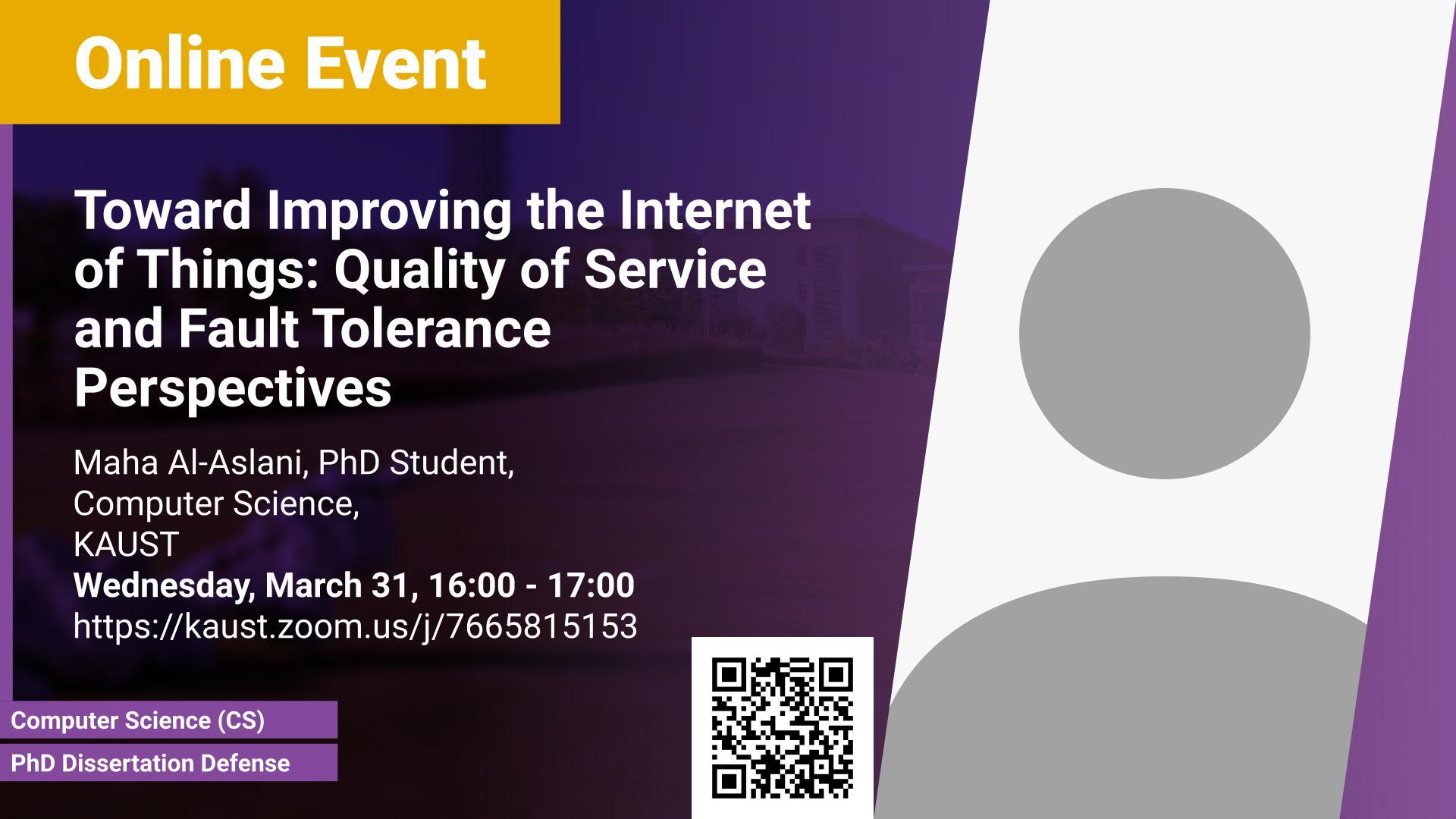Abstract
In this thesis defense, I will explore the unique characteristics of IoT traffic and examine IoT systems. The work is motivated by the new capabilities offered by modern Software Defined Networks (SDN) and blockchain technology. We evaluate IoT Quality of Service (QoS) in traditional networking. We obtain mathematical expressions to calculate end-to-end delay, and dropping. Then, we analyze IoT traffic load and propose an intelligent edge that can identify volumetric traffic and address them in real-time using an instantaneous detection method for IoT applications (IDIoT). This approach can easily detect a large surge and potential variation in traffic patterns for an IoT application, which may contribute to safer and more efficient operation of the overall system. Our results provide insight into the advantages of an intelligent edge serving as a detection mechanism. Subsequently, we propose SADIQ, SDN-based Application-aware Dynamic Internet of things QoS. SADIQ provides location-aware, context-driven QoS for IoT applications by allowing applications to express their requirements using a location-based abstraction and a high-level SQL-like policy language. We implement SADIQ using commodity OpenFlow-enabled switches and an open-source SDN controller. We evaluate its effectiveness using traces from two real IoT applications. Our results show that SADIQ improves the percentage of regions with an error in their reported temperature for the Weather Signal application up to 45 times; and it improves the percentage of incorrect parking statuses for regions with high occupancy for the Smart Parking application up to 30 times under the same network conditions and drop rates.
Despite centralization and the control of data, IoT systems are not safe from cyber-crime, privacy issues, and security breaches. It has become mandatory for IoT devices to shift from from an over-arched centralized operational model to an automated distributed architecture. Therefore, we explore blockchain technology. Blockchain offers a promising solution to overcome the current network limitations. In the context of IoT, Byzantine fault tolerance-based consensus protocols are used. However, the blockchain consensus layer contributes to the most remarkable performance overhead and a performance study needs to be conducted, especially for IoT applications subject to maximum delay constraints. We obtain a mathematical expression to calculate end-to-end delay with different network configurations, i.e., the number of network hops and replica machines. Our results show that characteristics unique to IoT traffic have an undeniable impact on the end-to-end delay requirement. In order to capture the unique requirements of the IoT, consensus mechanisms and block formation need to be redesigned. To this end, we propose Synopsis, a novel hierarchical blockchain system. Synopsis introduces a wireless-optimized Byzantine chain replication protocol and a new probabilistic data structure. Both are used to support locality and hierarchy as a means to mitigate failures and improve the overall performance of the system. We implemented Synopsis to evaluate its performance for large simulation setups and real-testbed experiments. The results show that Synopsis successfully reduces the memory footprint from Megabytes to a few Kilobytes with an improvement of 1000 times. Synopsis also enables reductions in message complexity and commitment delay of 85% and 99.4%, respectively.
Brief Biography
Maha AlAslani received the B.Sc. degree from King Abdulaziz University (KAU) in 2011, and the M.Sc. degree in wireless communication and green networks from King Abdullah University of Science and Technology (KAUST), Thuwal, Saudi Arabia, in 2015. She is currently working toward the Ph.D. degree in computer, electrical, and mathematical sciences and engineering. She is also a member of the Networking Research Lab, supervised by Professor Basem Shihada. Prior to KAUST, she worked as a teaching assistant at the Information Technology department in KAU. Her research interests include Internet of Things (IoT), IoT security, software defined networks and Blockchain.
